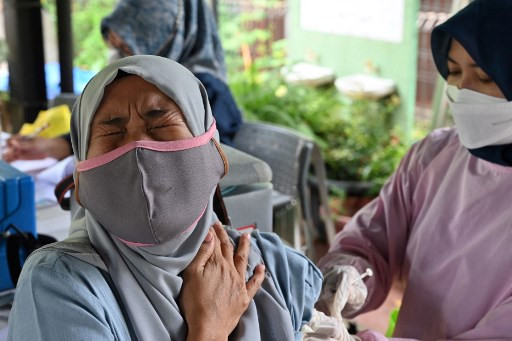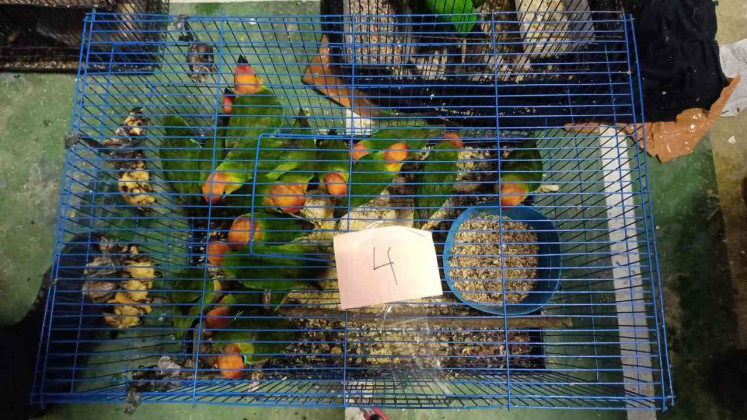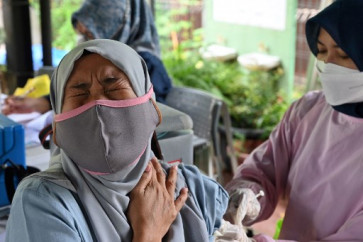Popular Reads
Top Results
Can't find what you're looking for?
View all search resultsPopular Reads
Top Results
Can't find what you're looking for?
View all search resultsFuture pandemic policies still waiting on next year’s serology survey
The government is going to wait on the results of next year’s serology survey to decide future pandemic policies, including when and whether or not the second booster dose would be expanded to a wider population.
Change text size
Gift Premium Articles
to Anyone
T
he government is going to wait on the results of next year’s serosurvey to decide future pandemic policies, including whether or not the second booster dose would be expanded to the wider population, and if so when.
The government last month expanded eligibility for a second booster dose to those aged 60 and above. The elderly join medical frontliners, who have been the first group to roll up its sleeves for a fourth jab, the second booster dose, since August.
When asked when a broader adult population could get their second booster dose, Health Ministry official Siti Nadia Tarmizi told The Jakarta Post on Monday that it would depend on the results of an upcoming serology survey, which would start in early January.
“[We are also waiting] on further recommendations from the World Health Organization and the Indonesian Technical Advisory Group on Immunization [ITAGI],” Siti said.
When asked what aspects of the serology survey would determine how the second booster dose would be expanded, Siti said that the government was still waiting for “experts’ deliberation”.
Those aged 18 or older, including the elderly, have been eligible for a third dose since January of this year, when the highly contagious Omicron variant triggered a third wave of infections in the country. But health authorities have said too few people were taking advantage of it. Only 28 percent of the total target population had received the first booster dose by Tuesday, government data showed. A closer look at the data also suggests that the inoculation of the third dose for the elderly remains sluggish, at 32 percent. Meanwhile, some 1.2 percent of the elderly have gotten their fourth dose.
Read also: Elderly now eligible to get second COVID-19 booster dose


















